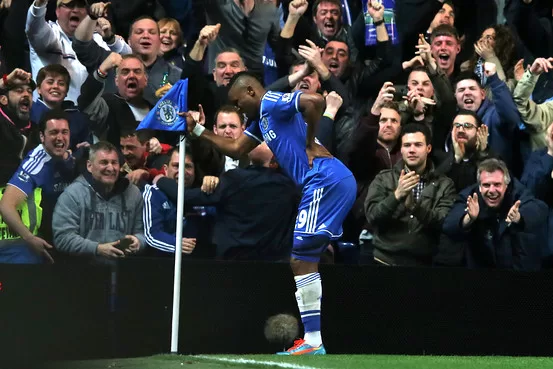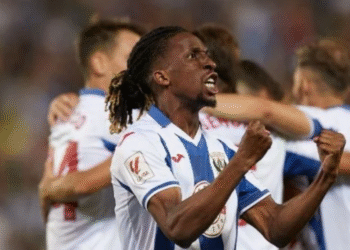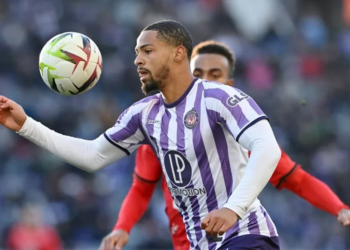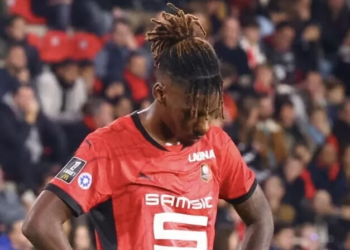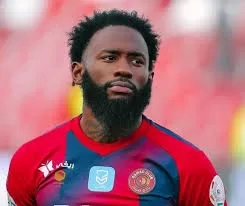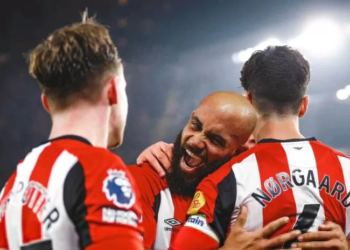Moments after opening the scoring in Chelsea’s 4-0 win over Tottenham Hotspur in the English Premier League on Saturday, Samuel Eto’o grabbed the corner flag with one hand, while grimacing and holding his lower back with the other. For an instant, the Cameroonian center forward, who turns 33 on Monday, resembled a cartoonish rendition of an old man with lumbago. And that was precisely the point: mocking his own age. Or, in this case, supposed age.
Last month, his boss, Chelsea manager Jose Mourinho, was caught in what he believed was an informal, off-the-record chat with a representative of his new watch sponsor. Apparently unaware that TV cameras were still rolling, he lamented his team’s lack of firepower up front. « I have a team, but no striker, » he said. « We have… Eto’o. Yes, Eto’o, but he is 32, maybe even 35, I don’t know. »
Mourinho, understandably, was furious. He called the recording of a private conversation a disgrace. He said it was meant to be a « funny conversation » and not something he would say in an « official interview. » And he underscored his admiration for Eto’o, whom he signed for both Chelsea last August and, in 2009, when he was managing Inter Milan.
Still, it was an ugly comment, a reference to rumors that have dogged the striker—and some other African players—throughout his career. The implication was that Eto’o—who made his international debut a day before he turned 16 and was the youngest player at the 1998 World Cup—enjoyed precocious success of the kind that can be explained by the simple fact that he was older than he claimed to be.
The player chose to respond with his celebration, earning praise from Mourinho for defusing the situation. It was very much in character for Eto’o, a man who, like few others, has managed to combine a pointed message (« Me old? I’ll show you old… ») with wit and humor.
Eto’o wasn’t the first African player to excel in the European game, but he may be the one who speaks the most about his African origins. Some of his quotes over the years speak volumes.
« I belong to Africa. I may live in Europe, but I sleep in Africa, » is a phrase he has repeated in numerous interviews and one that lends itself to several interpretations. When he joined Barcelona in 2004 he said: « I will run like a black man so I can live like a white man. » (He would later clarify the comment saying it was a reflection on how African players have to work that much harder.)
Over the years, he has been a high-profile antiracism campaigner, having been subjected to it numerous times over his career. He’s a philanthropist both in his native Cameroon and elsewhere: last month he announced a contest on Twitter TWTR +3.12% whereby he’d give away €7,500 ($10,408) to an NGO and to an individual who make the most compelling case for how they would use the money. When he left Inter in 2011 to join Russia’s Anzhi Makhachkala, a backwater in soccer terms, but a club that made him one of the highest-paid players in the world, his critics said it was greed. His advocates said it was for the kind of payday that would secure his future as an agent for social change, including a possible run at political office in Cameroon.
Last summer, after Chelsea failed to pick up a high-profile center forward, he arrived as a kind of trusted short-term fix. Anzhi had decided to cut back on spending and was ready to sell or release its top players. Eto’o had never played in the Premier League and, with the clock ticking, was eager to test himself.
Some were skeptical, and not just because of his age, real or imagined. Two years in Dagestan can sap your sharpness and competitive spirit. The English game can be a tough transition for a veteran who spent most of his career in Spain. Was he really a natural fit as the right man to turn the chances created by Chelsea’s gifted crop of attacking midfielders (Eden Hazard, Oscar, Willian) into goals?
In some ways, they’ve been vindicated. Saturday’s strike was the 300th of his club career, but only the seventh of this Premier League season (in 18 appearances). Across all competitions, he has nine in 29 games.
But Eto’o’s contribution goes well beyond goals. In fact, he’s a sterling example of how players adjust their game with age.
Earlier in his career, his game was built on quickness, strength and work rate. Now, it’s focused on movement and creating space for teammates; it’s not a coincidence that both Oscar and Hazard are enjoying prolific campaigns. The common theme is selflessness. At Barcelona, he famously said that he was happy to do the running for Ronaldinho, a superstar who at times didn’t seem preoccupied with the defensive side of the game: « We’re like a band. He’s the star guitarist, I play the drums in the back. Together we make music. »
At Inter, Mourinho converted Eto’o into a winger, asking him to track fullbacks and sacrifice himself defensively. His goal total suffered, but the end result was that a huge slice of the Italian club’s Champions League triumph belongs to him.
Eto’o will likely continue to share playing time with Fernando Torres and Demba Ba, as he’s done all season. He’s clearly a different player. But Chelsea sits atop the Premier League with a seven-point lead and is still alive in the Champions League in part because of the leadership and savvy Eto’o has brought.
By GABRIELE MARCOTTI

